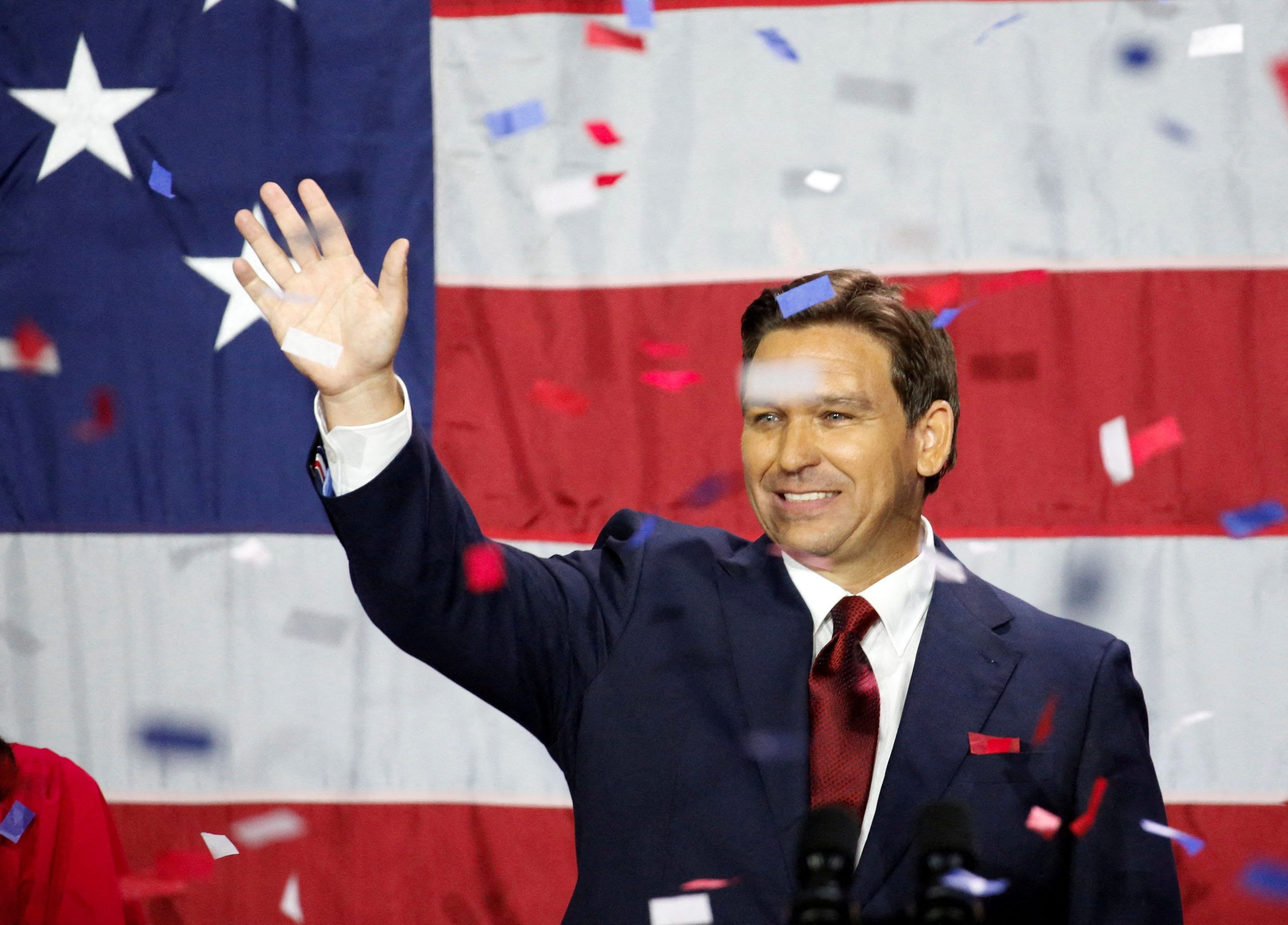
Vicky Arias, FISM News
[elfsight_social_share_buttons id=”1″]
A recent poll revealed a new trend in the Republican Party as conservative voters begin to shift their support from former President Donald Trump to Florida Governor Ron DeSantis.
A YouGov poll of 1,500 adults taken in the days immediately following the midterms reflected a transfer of Republican allegiance from Trump to DeSantis.
Of adults who declared themselves Republicans or Republican-leaners, 42% preferred DeSantis over Trump as the Republican nominee in the upcoming 2024 presidential election. By comparison, only 35% of the same group chose Trump over DeSantis.
The new poll stands in contrast to a previous Yahoo/YouGov poll from mid-October, just weeks before the midterms, that showed almost the exact opposite, with 45% of surveyed Republicans and Republican-leaning voters choosing Trump over DeSantis and 35% of the same group choosing DeSantis over Trump.
According to the poll, Trump still edges out DeSantis for the GOP pick among those who view themselves as “strong Republicans,” but only by a thin margin. Forty-five percent of these voters said they preferred Trump to DeSantis while 43% preferred DeSantis to Trump.
NEW: More Republicans and Republican-leaning Independents now say they'd prefer DeSantis (42%) as their 2024 presidential nominee over Trump than say they'd prefer Trump to DeSantis (35%). In an October poll w/@YahooNews, Trump was preferred, 45% to 35%.https://t.co/DKd1ugnNrs pic.twitter.com/i1OtpLVASJ
— YouGov America (@YouGovAmerica) November 12, 2022
The midterms seemed to have marred Trump’s reputation with deep-red voting blocks, as Trump-endorsed candidates recorded major losses in Pennsylvania with candidates Doug Mastriano and Mehmet Oz, as well as Blake Masters in Arizona. Additionally, Republican Herschel Walker, another Trump-backed Republican, will have to compete in a run-off election in Georgia to determine the winner of the Senate race there.
Many Republicans are blaming Trump, citing his personality and rhetoric, for the Republican losses in the midterms.
“Trump’s endorsement comes with a cost. The cost is that it minimizes your ability to attract independents and to win in November,” Republican Arkansas Governor Asa Hutchinson said on PBS’ “Firing Line with Margaret Hoover” on Friday.
On the other side of the argument is the fact that Trump did, in fact, back hundreds of midterm winners. However, critics say those races were either not competitive or backed by Republicans across the board.
In response to the midterm criticism, Trump spokesman Taylor Budowich told CNBC that “President Trump has racked up over 215 wins for his endorsements — a truly unprecedented accomplishment and something only possible because of President Trump’s ability to pick and elect winners.”
On his Truth Social app, Trump proclaimed victory in his midterm endorsements.
“I had such great success on Endorsements, perhaps success like no one has had before, both for Republican Nominations and the General Election itself, and I continue to get Fake News, RINO, and Radical Left criticism, but seldom congratulations or praise. That’s the way it is, and that’s the way it will always be!” Trump posted on Saturday.
Another factor that’s not sitting well with voters is Trump’s recent attacks on DeSantis.
Last week, Trump lashed out at the Florida governor, calling him “Governor Ron DeSanctimonious, an average REPUBLICAN Governor with great Public Relations, who didn’t have to close up his State, but did…and who has the advantage of SUNSHINE, where people from badly run States up North would go no matter who the Governor [is], just like I did!”
Conservative commentator Matt Walsh expressed his disapproval of the former president’s attack, saying in a tweet that “DeSantis is an extremely effective conservative governor who has had real policy wins and real cultural wins. Trump isn’t going to be able to take this one down with a dumb nickname. He better have more than that up his sleeve.”
DeSantis celebrated perhaps the biggest victory of any Republican last Tuesday, securing 59.38% of the votes for governor in Florida, a historical toss-up state where he won in 2018 with just 49.6% of the vote.
